Premium Only Content
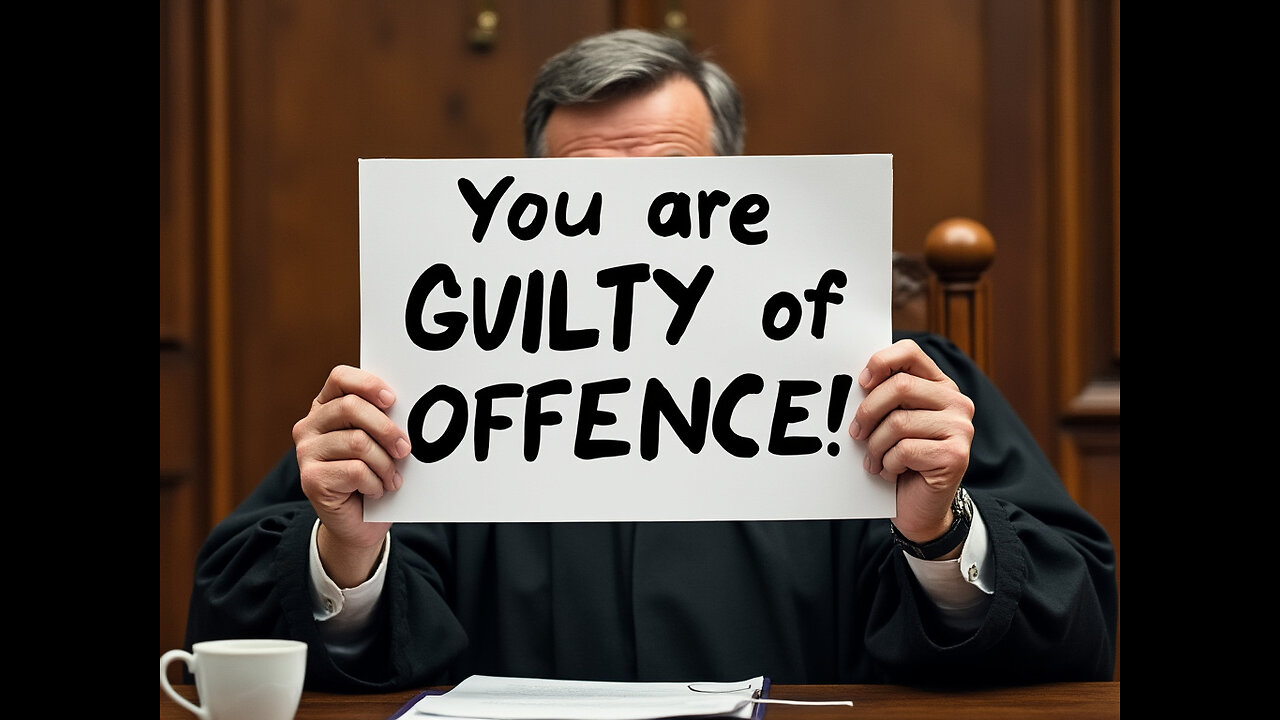
Hate Speech...
The Freedom and Right to Offend: Where Do We Draw the Line?
In democratic societies, the freedom of expression is often lauded as a cornerstone of individual liberty. Yet, as modern discourse becomes increasingly polarised, the question arises: how far should this freedom extend, especially when it comes to the right to offend? Should it be a criminal offence if one person’s expression offends another? And what happens when taking offence becomes a tool for silencing others through legal or social repercussions?
The Right to Offend and its Boundaries.
Freedom of expression implies the freedom to voice one’s beliefs, even if they are unpopular or cause discomfort. This principle has underpinned democratic progress, enabling critical conversations that drive societal change. From literature that critiques regimes to the voices advocating for equality, the right to offend has paved the way for more inclusive and free societies. However, as with any freedom, it comes with boundaries. Incitement to violence, hate speech, and defamatory language, for example, are typically excluded from protection as they directly harm others or incite harm.
But beyond these clear-cut cases lies a grey area. Should mere offence—causing emotional distress or disapproval—be sufficient to justify legal action? This question is increasingly relevant in today’s culture, where public and social media debates often pivot on the outrage sparked by controversial opinions.
Offence as a Weapon.
The act of feigning outrage to provoke consequences for others is becoming more common. By claiming offence and appealing to the collective conscience or legal bodies, individuals and groups can leverage this as a powerful tool to silence dissent or opposition. Ironically, this form of offence-taking often leads to an outcome where the person claiming harm, by instigating social or legal action, ends up causing offence and distress themselves.
This creates a paradox: in trying to punish someone for offending them, the offended party may engage in actions that are equally offensive to the other party’s right to free expression. Such dynamics can turn free speech into a zero-sum game, where offence becomes currency and public dialogue is stifled by a fear of retribution. It shifts the focus from the substance of arguments to emotional reactions, altering the fundamental balance of rational debate and societal growth.
The Consequences of a Hyper-Offended Society.
If society were to reach a point where taking offence alone could trigger criminal proceedings or widespread repercussions, the implications would be profound. The space for genuine dialogue and learning would shrink. Rather than an environment of open discussion, people would self-censor, wary of the potential fallout of expressing themselves. This could lead to a culture where only a narrow range of 'acceptable' opinions could be shared without fear of reprisal.
When discourse is governed not by principles but by the most sensitive or strategically outraged voices, society risks fostering a superficial peace—one maintained not by mutual respect but by fear of retribution. The ability to engage in honest, constructive disagreements is crucial for resilience and innovation. Without it, cultures can become stagnant, ruled by a conformity that stifles progress and creativity.
Navigating a Path Forward.
Finding a balance between protecting individuals from genuine harm and preserving the right to free expression is essential. While societies must safeguard against hate speech and incitement to violence, it is equally important to resist creating an environment where individuals weaponize their feelings of offence to silence others.
Education plays a vital role in fostering resilience and critical thinking. Encouraging individuals to distinguish between speech that challenges them and speech that genuinely seeks to harm can cultivate a more mature, nuanced culture. Furthermore, developing robust platforms for dialogue and discourse that prioritise empathy and understanding, rather than knee-jerk condemnation, can prevent society from descending into a battleground of outrage and counter-outrage.
In Conclusion.
To criminalise offence as an act could lead society down a slippery slope toward censorship and division. While speech should have reasonable limits to prevent real harm, it’s crucial that these limits are not set by emotional reactions alone. Offence is often subjective, and if allowed to be weaponized, it could erode the very fabric of free speech and open dialogue that underpins healthy democracies. The challenge lies in protecting individuals while also nurturing a society that values, rather than fears, the diversity of thought and expression. Only then can we avoid a future where silence becomes the safest and only option.
SOURCED FROM - https://x.com/KingArthurII2/status/1856647083484164574
-
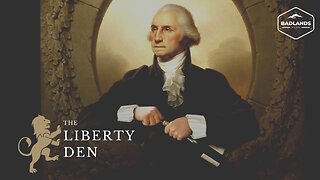 LIVE
LIVE
Badlands Media
7 hours agoThe Liberty Den Ep. 143
2,870 watching -
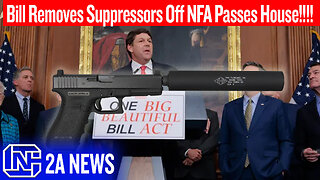 7:07
7:07
Colion Noir
4 hours agoBill Removes Suppressors Off NFA Passes House | One Big Beautiful Bill
22.1K11 -
 22:35
22:35
Stephen Gardner
1 day agoBiden's GETS NIGHTMARE notice from Congress!
15.9K49 -
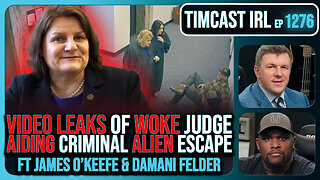 2:06:40
2:06:40
TimcastIRL
2 hours agoVideo LEAKS Of Woke Judge AIDING Criminal Alien ESCAPE, Claims IMMUNITY | Timcast IRL
131K47 -
 1:43:18
1:43:18
Glenn Greenwald
5 hours agoGlenn Takes Your Questions on the Trump Admin's War with Harvard, Fallout from Wednesday's DC Killing, and More; Plus: Lee Fang on Epstein's Dark Legacy in the USVI | SYSTEM UPDATE #460
91.8K33 -
 LIVE
LIVE
megimu32
2 hours agoTGI...FORTNITE?!? Friday Night Chill!
186 watching -
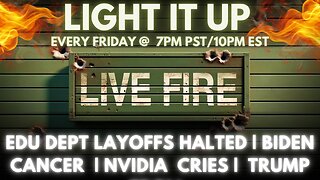 LIVE
LIVE
I_Came_With_Fire_Podcast
10 hours agoEDU DEPT LAYOFFS HALTED | BIDEN CANCER | NVIDIA CRIES | TRUMP
536 watching -
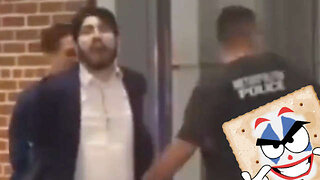 2:18:18
2:18:18
TheSaltyCracker
3 hours agoLefties Are Killing Jews ReeEEEStream 05-23-25
74K145 -
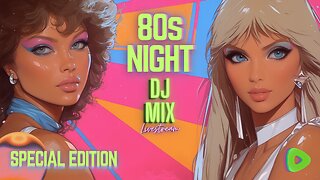 LIVE
LIVE
SynthTrax & DJ Cheezus Livestreams
11 hours agoFriday Night DJ MIX Livestream 80s Night SPECIAL EDITION with Variety Visuals
235 watching -
 LIVE
LIVE
OhHiMark1776
5 hours ago🟢05-23-25 ||||| Halo Multiplayer Rumble: No. 14 ||||| Halo MCC (2019)
56 watching